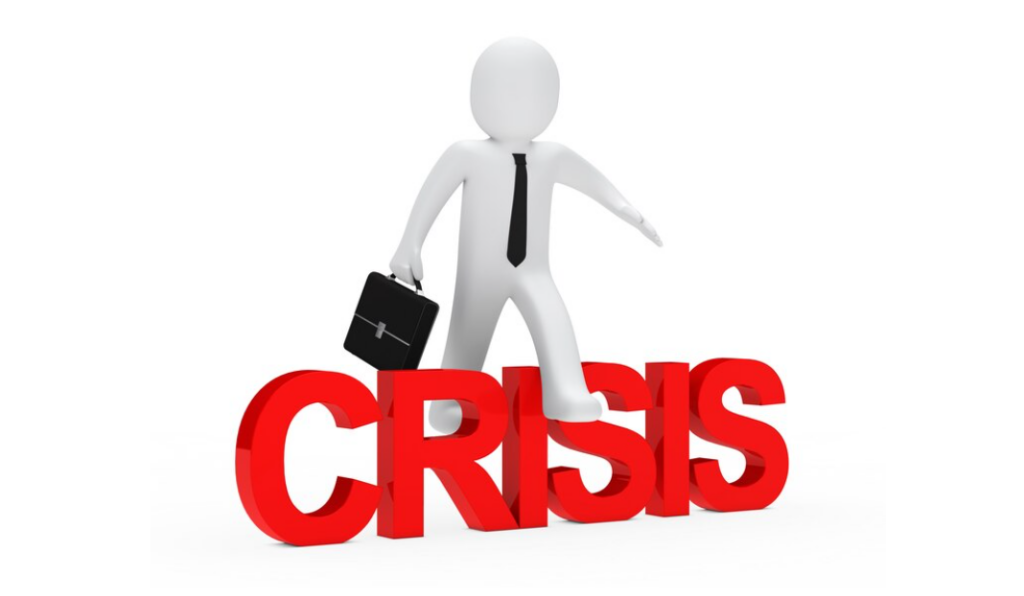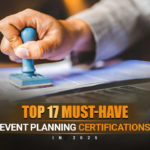
You need to be familiar with the significant changes that will impact the event planning industry in 2024. To remain successful, stay updated on industry trends, adopt new technologies, and cultivate adaptability. Continuous improvement of your skill set will position you to navigate the evolving landscape effectively. So, let’s explore 21 event planning skills for mastering the art of success in 2024.
21 Event Planning Skills for Mastering the Art of Success:
1. Manage Your Time Wisely.
Managing your time enables you to minimize the risk of last-minute rushes. Effective time management becomes indispensable in event planning, where tight timelines are the norm.
Time management also improves the quality of decision-making. You can make informed and strategic decisions with ample time, minimizing the likelihood of mistakes, oversights, or missed opportunities. It allows you the space to think critically and strategically.
Creating buffer time is another valuable outcome of wisely managed time. Unexpected challenges are inevitable in event planning, and having buffer periods provides the flexibility to address unforeseen issues without disrupting the overall schedule. This, in turn, reduces burnout, maintains overall satisfaction, and develops your event planning skills.
2. Closely Watch All the Related Details.
Observing all event details is a recommended practice and a necessary event planning skill. Closely monitoring details ensures that every element, from logistics to aesthetics, aligns with the overall vision and objectives. Your close attention to detail allows for identifying and mitigating potential risks.

Your focus on details is also essential for meeting client expectations. Clients have specific visions for their events, and your scrutiny ensures that the event aligns with their requirements, contributing to overall client satisfaction and positive feedback. Moreover, since events are ultimately about the experience for attendees, your attention to detail in elements like seating arrangements, signage, and catering enhances the overall guest experience, leaving a lasting positive impression.
Your attention to detail safeguards the brand’s reputation by presenting a polished, well-organized, professional image that positively impacts stakeholders and attendees. Lastly, analyzing details after an event provides valuable insights for continuous improvement. Identifying what worked well and areas for enhancement informs future planning, allowing for a more refined and successful execution in subsequent events.
3. Prepare Budget
Preparing a budget is a crucial event planning skill. Firstly, creating a detailed budget provides a comprehensive overview of the financial aspects associated with the event.
A well-prepared budget acts as a roadmap, guiding you to allocate resources efficiently, prevent overspending, and stay within the financial constraints defined by your client or organization.
It can lead to cost reductions, discounted services, or additional amenities, ultimately maximizing the value derived from the allocated budget.
Budget preparation also demands foresight, requiring you to anticipate potential challenges and allocate resources accordingly. This proactive approach enables you to address unforeseen circumstances without jeopardizing the event’s success. Moreover, your expertise in budgeting contributes to long-term career growth in event planning by showcasing your financial acumen and strategic thinking.
4. Have Seamless Communication
Developing seamless communication is a fundamental aspect of honing event planning skills. Seamless communication is not merely about conveying information but ensuring a smooth and efficient flow of messages across all stakeholders involved in the event.

As you cultivate seamless communication skills, you create an environment where information is exchanged effortlessly. There is less chance of miscommunication, mistakes, and delays when a smooth communication plan is in place.
Furthermore, as an event planner, you liaise between diverse groups, including clients, vendors, sponsors, and internal teams. Seamless communication bridges potential gaps understands varying perspectives, and facilitates effective collaboration. This diplomatic role is crucial for maintaining positive relationships and ensuring that everyone involved feels heard and comprehended.
5. Develop Negotiating Skills
Negotiating skills become paramount when you engage with vendors and suppliers in the realm of event planning. Whether it’s negotiating terms with venue providers, discussing arrangements with catering services, or securing entertainment, vendors are integral to the success of your event. Your proficiency in dealing with terms, deadlines, and deliverables is pivotal, as it ensures optimal arrangements, ultimately helping to make your event successful.
In your interactions with clients, negotiating skills take center stage. Effective negotiation is essential for aligning expectations, managing scope changes, and ensuring client satisfaction, allowing you to discover mutually beneficial solutions. Whether you’re navigating discussions around event details, timelines, or budget adjustments, your adept negotiation skills enable you to find solutions that meet both the client’s objectives and the logistical requirements of the event.
Negotiation also plays a critical role in forming partnerships and securing sponsorships. Engaging in delicate discussions with sponsors about deliverables, branding opportunities, and financial commitments requires a nuanced approach.
The negotiation process demands a keen understanding of the interests of both parties, effective communication, and creative problem-solving. Striking a delicate balance between assertiveness and flexibility is essential, ensuring your goals are met while maintaining positive stakeholder relationships.
6. Embellish Tech-savvy Mindset
Embracing a tech-savvy mindset is necessary in today’s dynamic event planning landscape. As an event planner, developing this mindset involves mastering digital event management platforms for streamlined processes and strategic decision-making.

With the surge in virtual and hybrid events, navigating virtual platforms and leveraging interactive features becomes crucial. Social media mastery is critical for effective promotion and engagement, while data analytics provides valuable insights for future planning. Staying abreast of innovative event technologies, practicing cybersecurity awareness, and using collaboration tools are vital components. Understanding website development basics and leveraging mobile event apps enhance attendee experiences.
Finally, adapting to emerging trends like AI-driven personalization and immersive event experiences positions you at the forefront of innovation. In essence, cultivating a tech-savvy mindset empowers you to enhance efficiency, engagement, and overall event success.
7. Familiarize With Virtual Event Expertise.
Being familiar with virtual event expertise is crucial in the evolving event planning landscape. As more events embrace virtual and hybrid formats, your expertise in navigating virtual event platforms becomes essential. This involves understanding the technical aspects of online tools, ensuring seamless connectivity, and maximizing interactive features to engage remote attendees effectively.
As a skilled event planner with virtual expertise, you can create immersive online experiences, manage virtual networking opportunities, and troubleshoot technical issues in real-time. Your proficiency in virtual event planning ensures the successful execution of virtual events, catering to a broader audience and adapting to the changing dynamics of the event industry.
8. Think Out of the Box
Thinking out of the box is a skill that sets you apart in event management. Embracing creativity involves exploring imaginative themes and concepts, considering unconventional venues, and introducing innovative event formats. Incorporating interactive installations, surprise elements, and themed catering adds a unique flair.

Collaborating with artists, crafting personalized experiences, and integrating technology enhance the overall event. Adopting a storytelling approach, themed dress codes, and infusing local culture create extraordinary experiences, ensuring your events stand out and leave an impactful impression on attendees.
9. Transform Concept into Experience
Transforming concepts into experiences is a crucial event-planning skill. As an event planner, this proficiency involves translating abstract ideas into concrete event concepts, strategically planning their execution, and executing creativity with meticulous attention to detail.
Your adaptability during execution, integration of technology, collaboration with stakeholders, implementation of quality control, and focus on guest interaction collectively contribute to the success of the conceptualized experience. Post-event evaluations ensure continuous improvement and showcase your ability to turn abstract concepts into tangible, impactful, and unforgettable event experiences.
10. Prepare for Crisis
Preparing for a crisis is an indispensable event-planning skill. It showcases your ability to anticipate and effectively manage unexpected challenges. As an event planner, this skill involves identifying potential risks and vulnerabilities in the planning process. And proactively address and mitigate them through detailed contingency plans. You establish clear communication protocols to inform all stakeholders during a crisis, ensuring transparency and trust.

Securing access to emergency resources, forming a dedicated crisis management team, and conducting rehearsals and drills are crucial. Building relationships with local authorities and leveraging technology for real-time monitoring demonstrate your commitment to a well-coordinated response. Implementing robust safety measures, managing media relations, and providing psychological support to those affected complete your comprehensive approach. Being adept at crisis preparation not only safeguards the success of your events but also positions you as a resilient and responsible event planner capable of navigating unforeseen challenges with composure and efficiency.
11. Be Quick in Decision-making
Being quick in decision-making is a paramount event planning skill, underscoring your ability to navigate events’ fast-paced and dynamic nature. This skill involves making timely and well-informed decisions, especially in high-pressure situations.
Quick decision-making allows you to address unexpected challenges, seize opportunities, and keep the event on track. It requires a balance between assessing available information swiftly and confidently choosing a course of action. This skill ensures the smooth flow of event operations and showcases your agility and adaptability in handling the myriad of decisions that arise throughout the planning and execution process.
12. Build Strong Relationships
Building solid relationships is foundational for successful event planning, showcasing your ability to connect meaningfully with clients, vendors, stakeholders, and team members.

As an event planner, this skill involves understanding client visions and fostering trust through clear communication. You must nurture vendor partnerships for seamless execution, engage with stakeholders to align goals and promote team collaboration for practical problem-solving. You must hone networking skills for industry connections, emphasizing transparent communication, developing conflict resolution abilities, and focusing on client retention.
You must be responsive to communication, express appreciation, practice cultural sensitivity, and maintain consistent follow-up post-events. Strong relationships are a strategic asset for your career’s success, sustainability, and growth within the collaborative event industry network.
13. Nurture Client Relationships
Nurturing client relationships is pivotal in event planning, showcasing your adeptness at building and maintaining positive connections throughout the event. As an event planner, active listening is critical to discern clients’ needs, preferences, and expectations. You must be able to tailor event plans accordingly. Establishing open communication channels informs clients about progress, changes, and developments.
Understanding clients’ goals is fundamental to aligning planning efforts and providing personalized service, creating a memorable experience. Anticipating needs demonstrates your keen understanding, while transparency and trust-building involve honest communication. Flexibility is crucial, as being adaptable to changes and showcases your commitment. Post-event engagement involves seeking feedback, expressing gratitude, and exploring future collaboration. Offering value-added suggestions and timely problem resolution contribute to a seamless experience.
Acting as a trusted advisor involves educating clients on trends, celebrating milestones, and fostering enduring relationships. In summary, nurturing client relationships in event planning requires a holistic approach, ensuring satisfaction and contributing to long-term success.
14. Be a Social Media Expert
Being a social media expert is crucial in event planning. You must have expertise in strategically planning and aligning your social media approach with the event’s goals and target audience. You excel in crafting compelling and shareable content, generating buzz, and increasing event visibility across various platforms. Your proficiency spans different social media platforms, understanding their unique features and tailoring content accordingly to maximize impact.

Engaging with the audience, fostering community, and responding promptly to inquiries or comments are integral to your social media mastery. During the event, you should provide live coverage, offering behind-the-scenes glimpses, live streams, and highlights to keep the audience engaged. You should create and promote event-specific hashtags, utilize paid social media advertising, and employ analytics tools to measure campaign impact. Your readiness for crisis management on social media and staying abreast of trends showcase your adaptability and proactive approach. To enhance engagement, you should actively interact with the audience through polls, Q&A sessions, and other features.
Post-event, your commitment continues with sustained engagement, sharing highlights, expressing gratitude, and encouraging participants to share their experiences.
15. Craft Strategic Marketing
Crafting strategic marketing is an essential skill in event planning. It showcases your proficiency in developing and executing impactful strategies for event success. As an event planner with expertise in strategic marketing, your approach includes understanding your target audience and creating a solid event brand. You must also implement multi-channel campaigns across platforms like social media and email.
Your ability to craft compelling content, make data-driven decisions, build media relationships, optimize for search engines, and master email marketing contributes to your events’ overall success and visibility. Additionally, your skills in collaborative networking, creative promotional materials, sponsorship activation, and continuous monitoring demonstrate your versatility.
16. Adapt to Change
Adapting to change is a vital event planning skill. It presents your ability to navigate uncertainties with resilience. It means swiftly modifying plans, making informed decisions on the spot, and developing robust contingency plans. Effective communication, team collaboration, and vendor coordination ensure seamless adjustments.

Enhancing the guest experience and optimizing resources in the face of unexpected changes demonstrate your adaptability. Leveraging technology for streamlined changes and conducting post-event evaluations contribute to your ability to manage uncertainties and position yourself as a resilient event planner.
17. Be Flexible in Execution
Flexibility in execution is a pivotal event planning skill. It involves swiftly adjusting plans in response to unforeseen circumstances and demonstrating quick problem-solving to maintain event momentum. You must create dynamic schedules that allow for flexibility, foster team coordination for shared problem-solving, and effectively communicate changes to vendors and collaborators.
Also, ensure positive guest interactions despite modifications and optimize resources efficiently during execution. You may leverage technology for streamlined changes and conduct post-event evaluations for continuous improvement. Being flexible provides successful adaptation to changes and positions you as a resourceful event planner capable of managing dynamic situations with composure.
18. Find the Perfect Venue
Securing the ideal venue is a crucial skill in event planning, showcasing your adeptness in selecting a setting that seamlessly aligns with the event’s objectives and elevates the overall experience. Your expertise involves understanding the event’s requirements by thoroughly assessing needs like capacity, layout, and technical specifications. Meticulously researching and shortlisting potential venues that match criteria and align with the event’s theme is essential. You also visit the site to assess ambiance and amenities, ensuring they align with the envisioned event.

Your role includes negotiating favorable terms, adhering to budgets, ensuring legal compliance, and planning for contingencies. Coordinating with vendors for logistics, considering accessibility for attendees, and selecting a flexible venue that enhances the guest experience are integral aspects of your meticulous planning. The perfect venue selection embarks the stage for a successful event and showcases your attention to detail and planning prowess as an event professional.
19. Ensure Smooth Operations
Ensuring smooth operations is a vital aspect of your event planning expertise. Your role demands meticulous coordination and a keen eye for detail to guarantee every facet of the event runs seamlessly. As an event planner, your responsibilities include coordinating logistical details, maintaining clear communication with stakeholders, addressing issues promptly, and managing timelines effectively.
Your leadership skills come into play as you guide and manage the event team, delegating tasks for a smooth workflow. Adaptability is vital for handling unexpected challenges without compromising the event’s success. Leveraging technology for streamlined processes and enhancing guest services further showcases your proficiency. Mastering these operational skills ensures a successful event and demonstrates your finesse and professionalism in navigating the intricacies of event execution.
20. Have Sustainable Event Planning
Integrating sustainable event planning into your skill set for eco-friendly venue options with energy-efficient facilities, waste reduction initiatives, and green certifications is necessary. Explore ways to minimize the event’s carbon footprint through locally sourced goods, energy-efficient lighting, and sustainable transportation options.

Embrace paperless solutions for invitations, registrations, and event programs to reduce paper consumption. Opt for sustainable catering with locally sourced, organic, and plant-based options while minimizing food waste.
Ensure energy efficiency by using LED lighting, regulating temperature, and maximizing natural light. You may foster community engagement by involving local businesses and supporting sustainable initiatives in the host community. Incorporate educational elements into the event program to raise awareness and inspire positive changes among attendees. Review the 19 Innovative Strategies for Achieving Sustainability in Events article for more insights.
21. Make a Positive Impact Socially
You must concentrate on inclusivity to ensure events are accessible to a diverse audience, promoting a sense of belonging. Collaborate with local businesses and organizations, fostering relationships and supporting community initiatives. Integrate philanthropic elements like donations drives or partnerships to contribute to social causes. Strive for diversity in event programming, including varied speakers and performers, reflecting a range of perspectives.
Ensure accessibility for individuals with disabilities through accommodations. Incorporate educational components into events to raise awareness about social issues and inspire positive change. Integrate sustainable practices, contributing to both environmental conservation and broader social responsibility. Provide volunteer opportunities for attendees, promoting a sense of community service.
Key Takeaway
As the event planning industry continues to evolve in 2024, it’s crucial to stay ahead of the curve by embracing change and innovation. Staying updated on industry trends, harnessing new technologies, and cultivating adaptability will be your keys to success this year. Remember, continuously improving your skill set is essential to navigate this ever-changing landscape effectively. We hope that by mastering the aforementioned 21 event planning skills, you’ll not only thrive in 2024 but also set the stage for a successful future in this dynamic and exciting field.




Comments are closed.